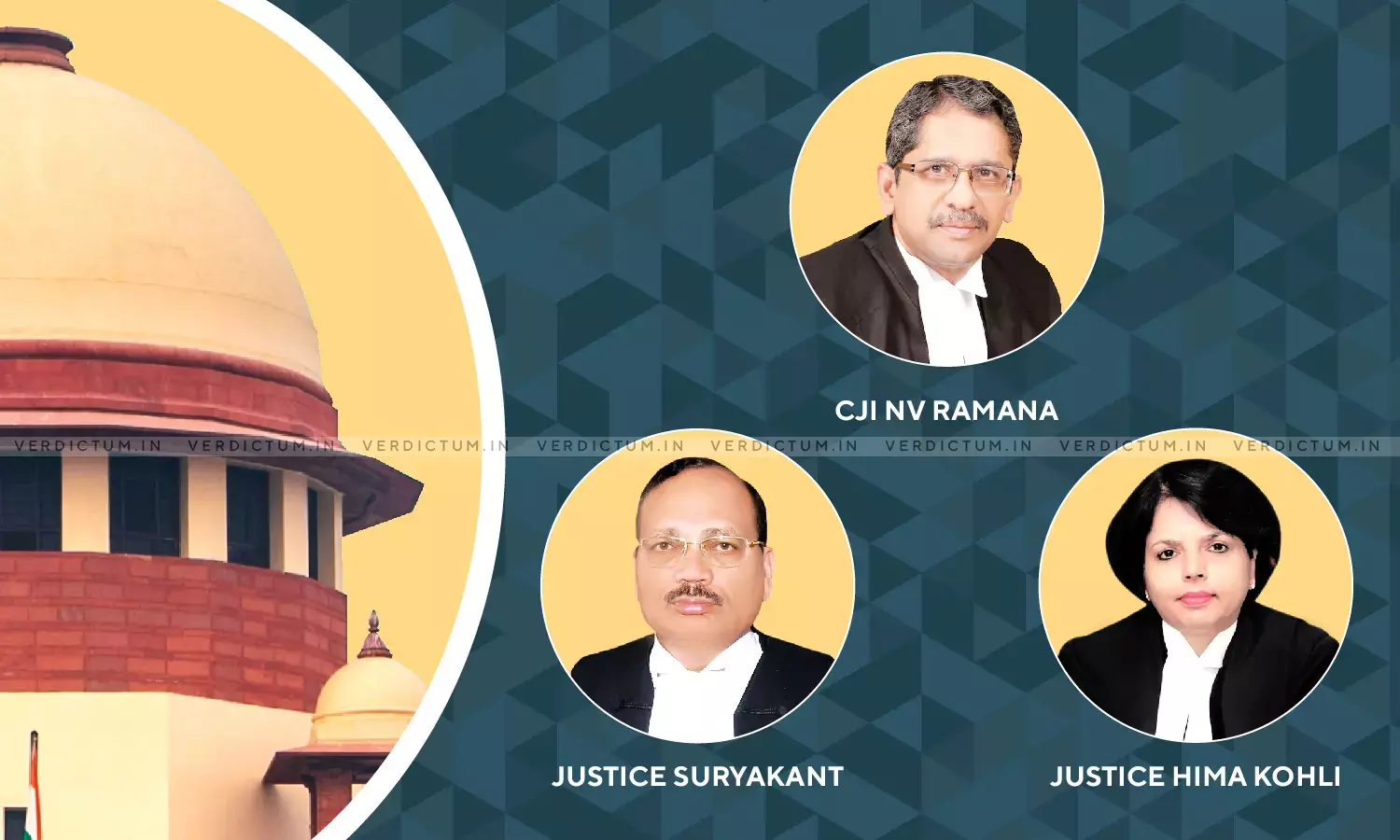Parties Are Not Prohibited From Raising New Grounds For Setting Aside An Award In An Appeal Under Section 37 Of The Arbitration Act: Supreme Court

A three-judge Bench of CJI NV Ramana, Justice Surya Kant and Justice Hima Kohli has held that in an arbitration appeal instituted under Section 37 of the Arbitration Act for setting aside an arbitral award the party is not restricted to raise any additional/new ground merely because such a ground was not raised in the petition filed under Section 34 of the Act.
An appeal was preferred assailing the order of the Chhattisgarh High Court which had disposed of two appeals; one filed by the Appellant-State and the other was filed by the Respondent-Company in which the High Court had partially modified the order of the District Judge, Raipur and reduced the interest awarded in favor of the Respondent-Company i.e., from 18% p.a. to 9% p.a. However, the appeal of the Respondent-Company was dismissed.
In this case, an arbitration award was passed whereby the award was challenged under Section 34 of the Arbitration Act. In an appeal filed under Section 37 by the State, it raised a new ground on the basis of 'supervision charges.'
It was contended by the Appellant-State that the arbitral award suffered from patent illegality and was liable to be set aside as 'supervision charges' were a part of the contract entered into between the parties.
While the Respondent argued that the Appellant-State having failed to raise any objection relating to the deduction of supervision charges in its Section 34 petition, it would be assumed that it had waived the right to take any such plea in the Section 37 petition filed in the High Court and before the SC.
The Apex Court noted that the arbitral award suffered from patent illegality since the terms and conditions of the agreement governing the parties and the circular issued by the Government of Madhya Pradesh concerning 'supervision charges' were completely ignored by the High Court and the Arbitrator.
Further the Court opined, "The plea of waiver taken against the appellant-State on the ground that it did not raise such an objection in the grounds spelt out in the Section 34 petition and is, therefore, estopped from taking the same in the appeal preferred under Section 37 or before this Court, would also not be available to the respondent-Company having regard to the language used in Section 34(2A) of the 1996 Act that empowers the Court to set aside an award if it finds that the same is vitiated by patent illegality appearing on the face of the same."
"Therefore, it does not stand to reason that a provision that enables a Court acting on its own in deciding a petition under Section 34 for setting aside an Award, would not be available in an appeal preferred under Section 37 of the 1996 Act," observed the Bench.
Additionally, the Court held, "Failure on the part of the learned Sole Arbitrator to decide in accordance with the terms of the contract governing the parties, would certainly attract the "patent illegality ground", as the said oversight amounts to gross contravention of Section 28(3) of the 1996 Act, that enjoins the Arbitral Tribunal to take into account the terms of the contract while making an Award."
In the light of these observations, the Court partly allowed the appeal and set aside and quashed the impugned award to the extent of permitting deducting supervision charges recovered from the Respondent-Company by the Appellant-State as a part of the expenditure incurred.

